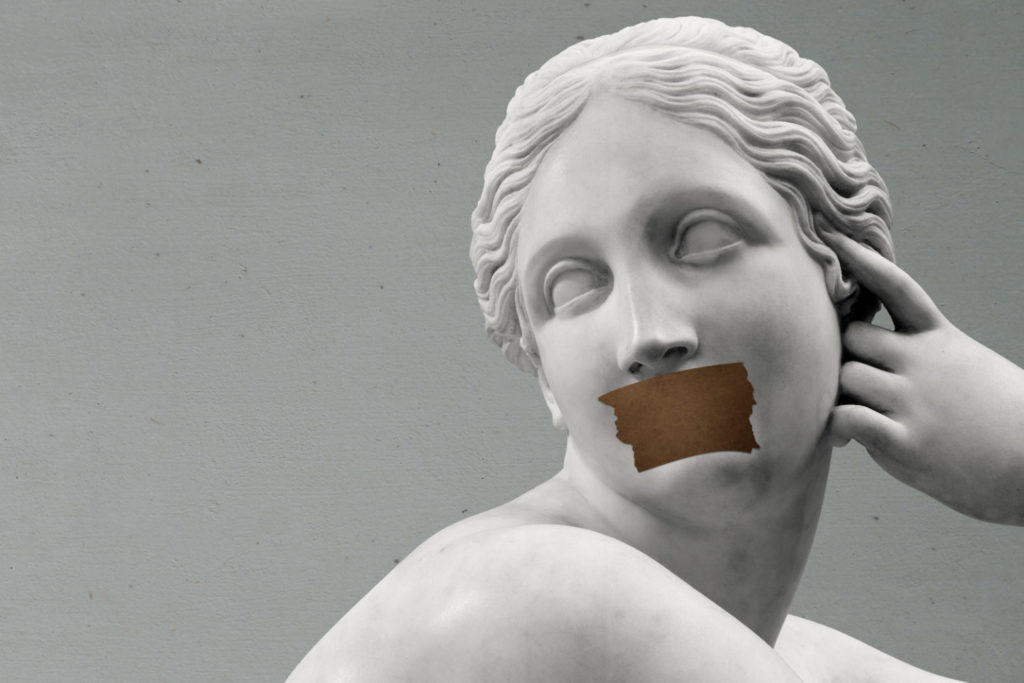Is a global program enlisting teachers to fight ‘misinformation’ really about quelling dissent?
Some of the world’s most powerful health organizations have gained a major ally in their campaign to quell dissent within the medical profession and the public at large.
The United Nations…

Some of the world’s most powerful health organizations have gained a major ally in their campaign to quell dissent within the medical profession and the public at large.
The United Nations Educational, Scientific and Cultural Organization (UNESCO) has launched a program designed to enlist teachers around the world as warriors in a fight against “conspiracy theories and misinformation.”
The initiative seeks to limit speech and inquiry into specific subjects that dovetail tightly with the goals and efforts of the United Nations, the World Economic Forum and a whole forest of groups and agencies dedicated to establishing and enforcing a globalist worldview.
The global COVID-19 pandemic response exposed once-respected major health organizations – such as the World Health Organization (WHO), Centers for Disease Control and Prevention (CDC) and National Institutes of Health (NIH) – as biased, political groups adept at manipulating the flow of information. The gross errors stemming from their self-described “science-based assessments and recommendations” arguably have cost millions of lives across the globe.
Their hubris also demonstrated an additional, disturbing quality: the willingness to contravene long established norms of scientific inquiry in favor of proffering an “approved narrative,” willingly participating in the suppression of contrary information, regardless of its accuracy.
Whether the subject is treatment regimens for COVID-19 or concerns about mRNA vaccine safety and effectiveness, these vast, hegemonic health organizations have treated dissent as illegitimate, deriding contrary opinions or research as “disinformation” or “misinformation.”
And UNESCO intends to implant this in the minds of global youth via government schools.
As the years have passed, evidence contrary to the “official” health narrative has grown so ponderous as to reach a tipping point approaching incontrovertibility. Much of what is now accepted fact was once vigorously denied by public health authorities, to the point of demanding governments silence those who spoke out.
Faced with the resulting loss of prestige and respect, these titans of public health – and their industry and government company allies – recognize the free flow of information to be a threat to their further relevance and funding.
Their strategy is simple. Anything outside of their approved viewpoint is to be declared illegitimate, and potentially actionable in a court of law as a violation of the public trust. The intent to chill dissent is unmistakable.
Science is utterly dependent on free inquiry. Having avenues of research arbitrarily restricted ensures the eventual death of innovation and discovery. However, that is precisely what UNESCO’s initiative will do, as it establishes politically dictated boundaries governing the pursuit of truth.
In his farewell address, President Eisenhower warned that the rapidly increasing federal dominance of research funding would lead to the rule of “a scientific and technological elite,” with science becoming dependent on political will as expressed in government grant-making.
This pecuniary dynamic has created a science-for-hire model of research, where loyalty is pledged to funders, not findings.
UNESCO is not alone in its headlong rush to facilitate an Orwellian future. In August, one of the family of journals under the “Nature” umbrella, “Nature Human Behavior” (NHB), issued a new ethics “guidance” for researchers in the human sciences, one that will mean the death of the disinterested pursuit of truth through scientific inquiry.
The guidelines assert an affirmative duty on the part of researchers to treat “the potential benefits and harms of research about humans” on an equal footing to “research on humans” [emphasis mine].
The authors believe “research may – inadvertently – stigmatize individuals or human groups. It may be discriminatory, racist, sexist, ableist or homophobic. It may provide justification for undermining the human rights of specific groups, simply because of their social characteristics.”
Clearly, the problem the policy targets isn’t the research itself, but the prejudiced misapplication of the findings. Nonetheless, rather than confront the 800-pound gorilla of human bias, the guidance authors chose instead to closely regulate or eliminate any research involving the protected groups listed above.
While disability is included among the potential targets of discrimination, a careful review of the guidance document reveals issues of race, gender and sexuality form the bulk of the redrawn boundaries.
J. Scott Turner, writing for the National Association of Scholars, describes the regime which the new guidance advocates as akin to “intellectual customs agents [who] will rummage through your baggage looking for ideologically illicit thoughts to confiscate, and perhaps jail you if they find any.”
Referring to the guidance’s intention of “fencing off of entire areas of scientific inquiry as unethical,” Turner continues:
“Two – race and gender – attract the special scrutiny of NHB’s new scientific commissars. Race, it is declared, is a mere social construct: it is assumption, not reality. To quote: ‘[h]umans do not have biological races’. That’s good to know. And if race is not real, there can be no legitimate reason to explore it scientifically. Are we not right, comrades?”
Turner then notes the intellectual incongruity of the guidance framework.
“It is the same with gender, but with a twist. There is now apparently a bright line – a line which until a few years ago was quite dim – between sex (which is biological) and gender (which is a mere social construct). Unlike the social construct of race, which we must ignore, we must now be exquisitely sensitive to the social construct of gender.”
This trend toward censorship and control accomplishes none of the goals it aims for. By seizing the role of unimpeachable arbiter of what is or isn’t “misinformation,” the would-be regulators simply elevate their preferred narrative over all others, regardless of utility or truth.
The actions of UNESCO and Nature ably embody Mencken’s famous aphorism, “The urge to save humanity is almost always a false front for the urge to rule.”



